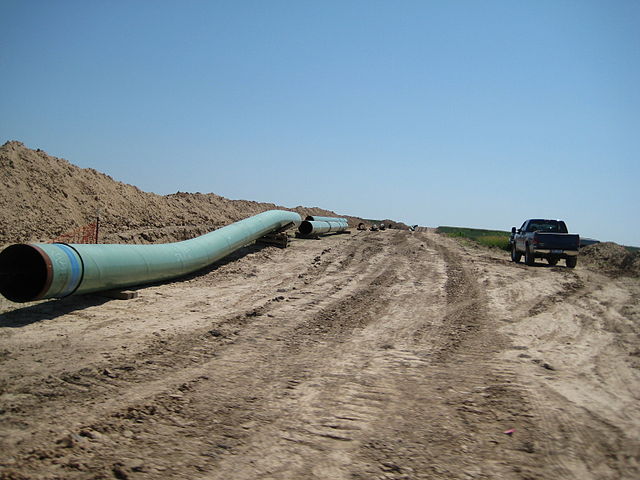
WASHINGTON — With a major decision on the Keystone XL pipeline looming in Washington, the project faces yet another snag in the place where opposition to it began — Nebraska.
Opponents there say they may have stalled it for more than a year.
The perenially postponed pipeline project will wind its way through the Nebraska court system yet again, with both sides asking the courts for more clarity on the legality of imposing the route on hostile landowners.
A lawyer who fought the project once to the state supreme court said it’s headed back. Dave Domina predicted a possible timeline that involves a lower-court case, followed by an inevitable appeal by the losers.
“Perhaps the best estimate I can give at this time is that the case will last at least 18 months longer before another decision by the Nebraska Supreme Court,” Domina said in an email.
He said the state’s highest court won’t be able to duck the decision, as it did last time. The court failed last month to find quorum to reach a decision in a case over the constitutionality of the state law that approved the route.
The practical result of that non-decision was that pipeline-maker TransCanada Corp., was able to begin eminent-domain proceedings against the few dozen landowners still resisting the project.
But new lawsuits were filed in two counties over the eminent-domain process and a judge on Thursday granted a temporary injunction against eminent-domain proceedings pending the outcome of the suits.
The company didn’t fight it.
TransCanada said it agreed to the injunction in the hope of obtaining some clarity, once and for all.
“All we have asked for is a clearly defined approval process for Keystone XL,” the company said in a statement. “As part of this agreement, we are seeking an accelerated trial schedule to expedite the process.”
The company could not say whether Domina’s 18-month scenario was realistic.
The sudden announcement came as the pipeline saga appeared to be reaching a determining chapter in Washington. President Barack Obama is poised to announce soon whether he’ll grant a permit for pipeline to cross the Canada-U.S. border.
That permit is required to connect the already-functioning southern leg of the pipeline to the Canadian oilsands.
The project first stalled in Nebraska when a minority of landowners along the route rallied against it. They fought it in court there and environmental activists across the U.S. seized it as a national issue.
Many Democrats are pressing the president to reject the project, to cement his climate-change legacy. Obama sounds increasingly negative lately when discussing the plan.
The president has said he’ll veto any effort by Congress to force him to approve it. The White House says the cross-border regulatory process belongs to the president, not legislators.
A pro-pipeline bill passed Congress for the first time this week — but a veto appears inevitable.